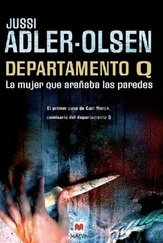I receive communications almost every day from an institution called the Center for Short-Lived Phenomena. Reporting sources all over the world, and an extensive correspondence. Under the title “Type of Event: Biological,” I have received postcards about the progress of the Dormouse Invasion of Formentera: “Apart from population density, the dormouse of Formentera had a peak of reproduction in 1970. All females checked were pregnant, and perhaps this fact could have been the source of the idea of an ‘invasion.’” And the Northwest Atlantic Puffin Decline. I have followed the Tanzanian Army Worm Outbreak. The San Fernando Earthquake. The Green Pond Fish Kill (“Eighty percent of the numbers involved,” the Center’s postcard reports, “were mummichogs.”) The Samar Spontaneous Oil Burn. The Hawaiian Monk Seal Disappearance. And also, the Naini Tal Sudden Sky Brightening.
Those are accounts of things that did not last long, but if you become famous for a single thing in this country, and just endure, it is certain you will recur, enlarged. Of the eighteen men who were indicted for conspiracy to murder Schwerner, Goodman, and Chaney, seven were convicted by a Mississippi jury — a surprising thing. But then a year later, a man was wounded and a woman killed in a shootout while trying to bomb the house of some Mississippi Jews. It turned out that the informer, the man who had helped the bombers, and led the F.B.I. to them, was one of the convicted seven — the one, in fact, who was alleged to have killed two of the three boys who were found in that Mississippi dam. And what’s more, and what’s more, the convicted conspirator, alleged double killer, was paid thirty-six thousand dollars by the F.B.I. for bringing the bombers in. Yet the wave of anti-Semitic bombings in Mississippi stopped after the shootout. I don’t know what it means. I am in this brownstone.
Last year, Aldo moved out and went to Los Angeles on a story. I called him to ask whether I could come. He said, “Are you going to stay this time?” I said I wasn’t sure. I flew out quite early in the morning. On the plane, there was the most banal, unendurable pickup, lasting the whole flight. A young man and a young woman — he was Italian, I think; she was German — had just met, and settled on French as their common language. They asked each other where they were from, and where they were going. They posed each other riddles. He took out a pencil and paper and sketched her portrait. She giggled. He asked her whether she had ever considered a career as a model. She said she had considered it, but she feared that all men in the field were after the same thing. He agreed. He began to tell off-color stories. She laughed and reproached him. It was like that. I wondered whether these things were always, to captive eavesdroppers, so dreary. When I arrived at Aldo’s door, he met me with a smile that seemed surprised, a little sheepish. We talked awhile. Sometimes he took, sometimes I held, my suitcase. I tried, I thought, a joke. I asked whether there was already a girl there. He said there was. He met me in an hour at the corner drugstore for a cup of coffee. We talked. We returned to the apartment. We had Scotch. That afternoon, quite late, I flew home. I called him from time to time. He had his telephone removed a few days later. Now, for a while, he’s here again. He’s doing a political essay. It begins, “Some things cannot be said too often, and some can.” That’s all he’s got so far.
We had people in for drinks one night last week. The cork in the wine bottle broke. Somebody pounded it into the bottle with a chisel and a hammer. We went to a bar. I have never understood the feeling men seem to have for bars they frequent. A single-story drunk told his single story. A fine musician who was with us played Mozart, Chopin, and Beethoven on the piano. It seemed a great, impromptu occasion. Then he said, we thought, “I am now going to play some Yatz.” From what he played, it turned out he meant jazz. He played it badly.
We had driven in from another weekend in the country while it was still daylight. Lots of cars had their headlights on. We weren’t sure whether it was for or against peace, or just for highway safety. Milly, a secretary in a brokerage office, was married in our ground-floor shop that evening. She cried hysterically. Her mother and several people from her home town and John, whose girl she had been before he married Inez, thought it was from sentiment or shyness, or for some conventional reason. Milly explained it to Aldo later. She and her husband had really married two years before — the week they met, in fact — in a chapel in Las Vegas. They hadn’t wanted to tell their parents, or anybody, until he finished college. They had torn up their Las Vegas license. She had been crying out of some legal fear of being married twice, it turned out. Their best man, a Puerto Rican doctor, said his aunt had been mugged in a cemetery in San Juan by a man on horseback. She thought it was her husband, returned from the dead. She had required sedation. We laughed. My friend across the hall, who owns the beagle, looked very sad all evening. He said, abruptly, that he was cracking up, and no one would believe him. There were sirens in the street. Inez said she knew exactly what he meant: she was cracking up also. Her escort, a pale Italian jeweler, said, “I too. I too have it. The most terrible anguishes, anguishes all in the night.”
Inez said she knew the most wonderful man for the problem. “He may strike you at first as a phony,” she said, “but then, when you’re with him, you find yourself naturally screaming. It’s such a relief. And he teaches you how you can practice at home.” Milly said she was not much of a screamer — had never, in fact, screamed in her life. “High time you did, then,” Inez said. Our sportswriter said he had recently met a girl whose problem was stealing all the suede garments of house guests, and another, in her thirties, who cried all the time because she had not been accepted at Smith. We heard many more sirens in the streets. We all went home.
At 4 a.m., the phone rang about fifty times. I did not answer it. Aldo suggested that we remove it. I took three Valium. The whole night was sirens, then silence. The phone rang again. It is still ringing. The paper goes to press tomorrow. It is possible that I know who killed our landlord. So many things point in one direction. But too strong a case, I find, is often lost. It incurs doubts, suspicions. Perhaps I do not know. Perhaps it doesn’t matter. I think it does, though. When I wonder what it is that we are doing — in this brownstone, on this block, with this paper — the truth is probably that we are fighting for our lives.
“YOU CALL that ninety degrees?” he said. It was one of the many unanswerable things he used to say. I hadn’t really called it ninety degrees. He had asked me to fly a ninety-degree turn. I had turned ninety-four. “Watch it. Watch it. Watch it,” he said. Silence. One knows instantly, or not at all, what Watch it is a warning of. More silence. Turns. Suddenly, he grasped my wrist. I jumped. “Christ!” he shouted. “I been telling you to relax.”
The students at our flight school are businessmen, veterans of Vietnam, two wives, three secretaries, a schoolboy, a Jesuit priest, and me. On clear days, the traffic over our small field is dense. Some of the veterans, who want to be professional pilots of all sorts, fly helicopters here. Planes are lined up in the sky to land, on the runway to take off. Bush pilots settle in the hills, and seaplanes on the pond. All around, helicopters keep leaping up and down. Now and then, one hears, from nowhere visible, a quavering voice. “Penrose,” it says by radio, “this is Six Two Uniform. Can you help me out. I’m lost.” The tower is calm. “Any familiar landmarks, Six Two Uniform?” Sorry. No. The tower asks for a description of any highways the lost pilot sees below; then, gradually, brings him in. I had not expected lost pilots to be a frequent problem in the air. I wondered, though, whether anyone, above the runway all alone, had ever feared and then refused to land. “Oh, sometimes they hesitate so long we think we’re going to have to shoot them down,” the instructor said. “But they run out of gas.”
Читать дальше












